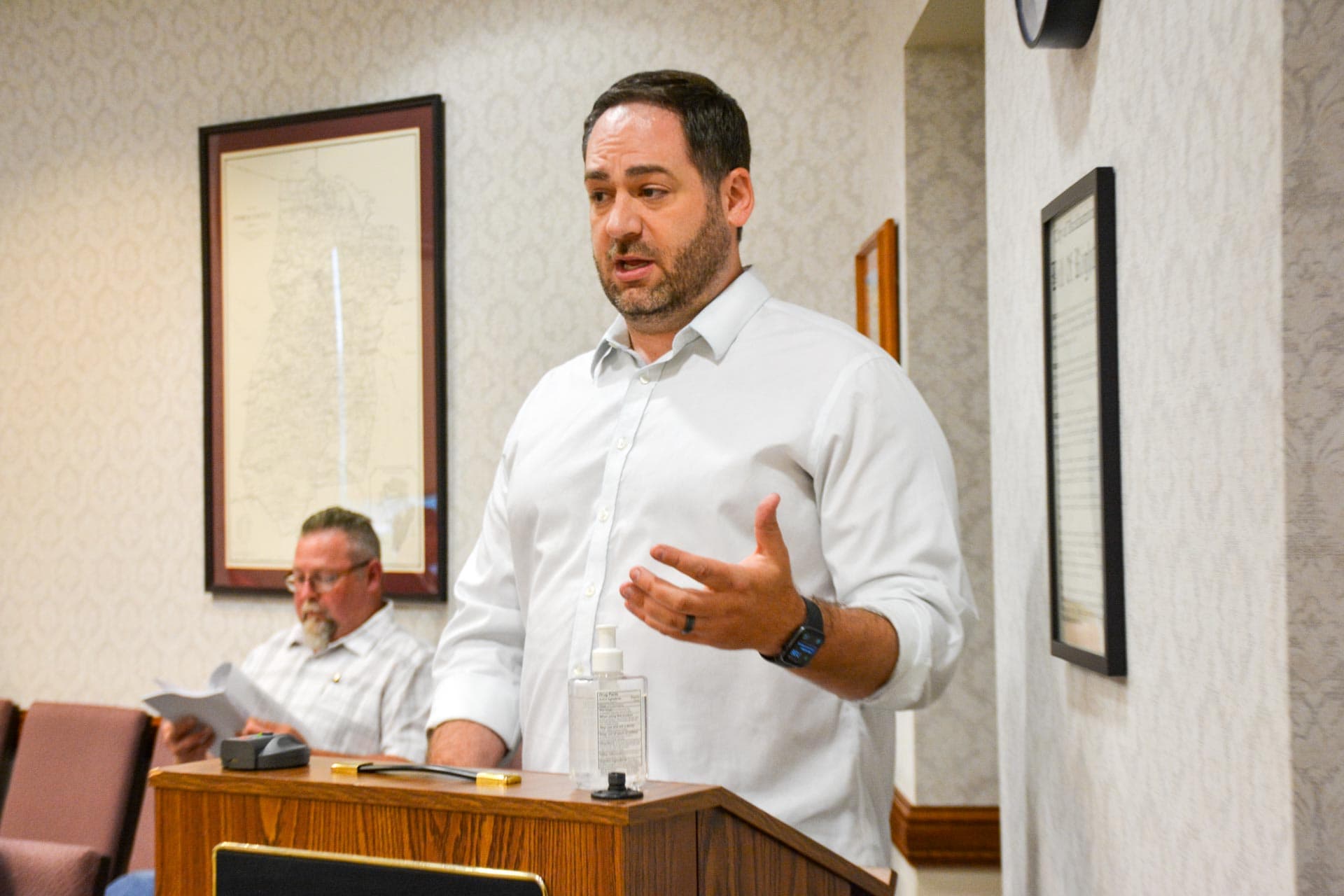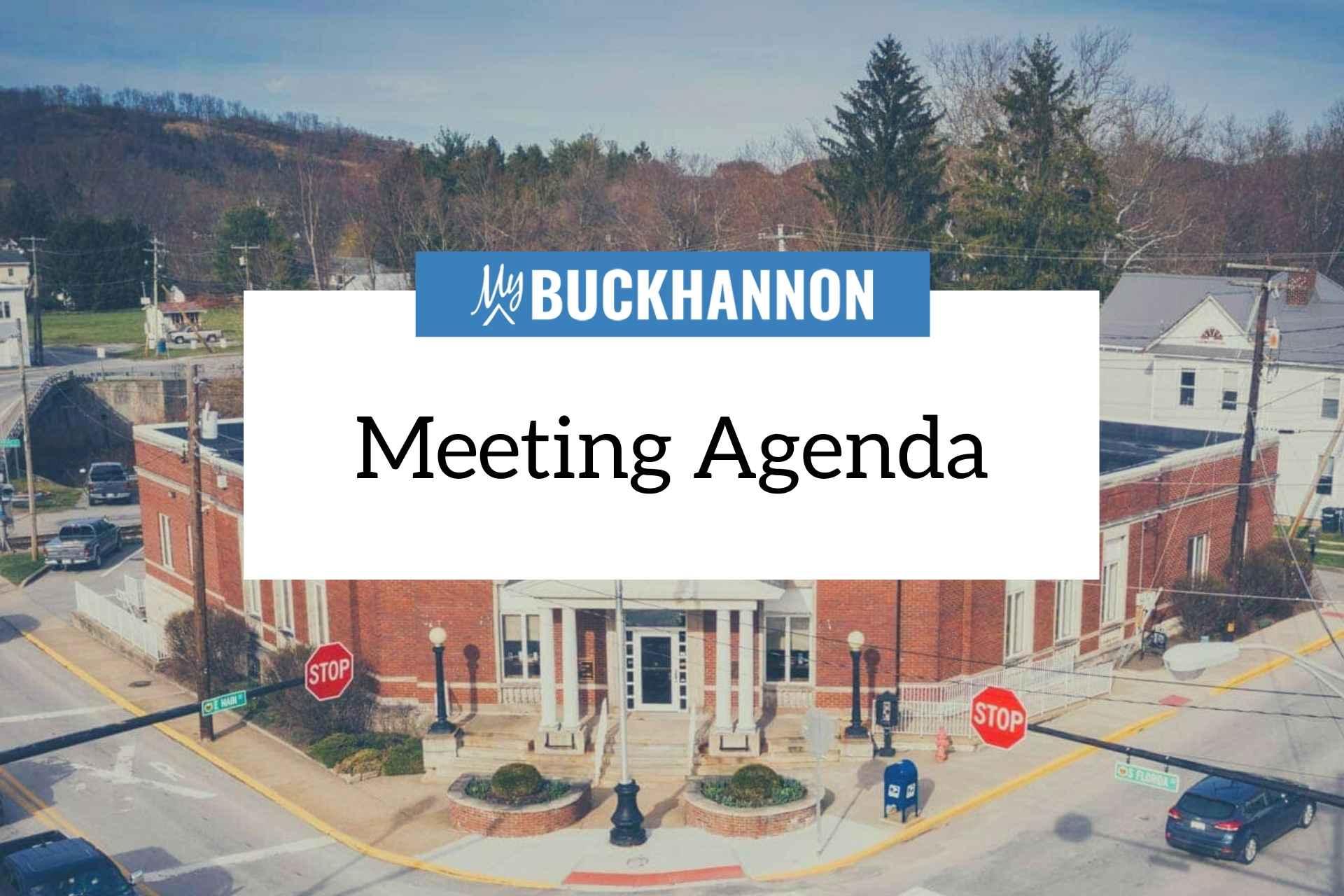BUCKHANNON – Buckhannon City Council on Thursday unanimously approved two recommendations from the Colonial Theatre Board, including renaming the facility as the ‘Colonial Arts Center,’ or CAC, and approving their programming policy and adoption of their mission statement.
John Waltz, executive producer of the Buckhannon Community Theatre and president of the Colonial Theatre Board, addressed council and told members the Board has had two major meetings, and they will continue meeting the first Tuesday of every month at 5 p.m. in Council Chambers.
“During those meetings, we established a prioritization of some things we hope to accomplish as the Colonial Theatre Board and those involved thinking about the name and second, a mission statement to drive some of our decision-making, and third, a programming policy,” Waltz said. “Our next steps will be to think about staffing and human resources.”
The city has a say over the naming of the space and its mission statement because the Colonial Theatre renovation project is a three-way collaboration between the City of Buckhannon, ART26201 and Buckhannon Community Theatre. In addition, the city owns the space, and the center will operate as a publicly funded entity.
Waltz, who presides over that board, said for the name, board members decided on ‘Colonial Arts Center’ or CAC.
“The reason for the Colonial Arts Center and not the Colonial Theatre is that the facility is already much more than just a theatre,” Waltz explained. “There is an art gallery that certainly has its own life, and there is show right now. There will be classroom spaces downstairs and a second space upstairs. So, there would be the Colonial Theatre within the space, but we believe the Colonial Arts Center is much more indicative of what that space will be and might help us as we try for grant opportunities in the future to speak to that being a community hub.”
Ordinance 450, which establishes the board, needed to be amended from Colonial Theatre to ‘Colonial Arts Center’ to reflect the new name, city attorney Tom O’Neill explained.
Councilwoman Pam Bucklew raised a concern about the connotation of the word ‘colonial.’
“Buckhannon’s wanting to be progressive and professional, and it’s been in the news a lot lately about using the word colonization, and ‘colonial’ is a form of the word ‘colonization,’” she said, “and in the dictionary that means ‘controlled by another,’ so I thought we might want to consider taking that word ‘colonial’ out of there because politically [that indicates] racism … but that has been brought to my attention.”
Bucklew suggested calling the space the Upshur Arts Center or Buckhannon-Upshur Arts Center, and Waltz said he would bring that concern to the board. However, council members, including Bucklew, ultimately voted to unanimously approve the name change when no other council members objected.
Moving on to the mission statement, Waltz said the group spent a lot of time devising the CAC’s overall goal. The proposed mission statement for the Colonial Theatre Board is: “The Colonial Arts Center will serve as a community arts hub, facilitating and providing venues for creative and educational opportunities for students, artists, and audience members through diverse programming,” Waltz said.
“We wanted a brief mission statement, but we wanted one that spoke to education, the community nature of the facility and also that is a space for artists,” he said. “We want to add to a quality of life, a sense of place – all of those things we believe the Colonial can bring to our community.”
He next spoke about the proposed programming policy draft, saying the board was hoping to formally adopt the CAC’s programming policy during its next board meeting, Tuesday, July 6; however, he noted protocols may change as they work through the process.
“What the programming policy was designed to do is create a system by which the Colonial Board would make decisions and prioritize how decisions would be made [about arts center usage] without someone believing someone else is playing favorites – so we established a protocol where the board is the decision-making group on policy,” Waltz explained. “As you work through it, it establishes a priority of use.”
Waltz explained first priority would go to city arts education programming with fiduciary partners – including ART26201 and the Buckhannon Community Theatre – as second. Third priority would go to arts-focused entities and fourth to general, non-arts specific, nonprofit, city and non-arts-based education rental requests. Finally, the fifth priority for use of the space would be civic and religious groups, businesses and individual requests.
“We created these priorities in order to be fair and thorough to evaluate these things,” he said. “Requests to use the space will need to be made 45 days out to give the board, which meets every 30 days, time to approve the requests.
Waltz said the next step the board will undertake is creating a job description for a potential city employee who will oversee the center’s management and operations; that position description will be brought back to council for consideration.
“We hope to bring that back to you along with a package of some logos and branding that would enable us to promote and start a website,” Waltz said.
Council members offered thanks to the Colonial Arts Center Board before approving the proposed programming policy.
In January 2017, the city purchased the historic Colonial Theatre – which had mostly recently housed a string of bars – for $60,000 from property owner Catherine Cuppari. The same year, the city was awarded a $102,000 West Virginia Division Culture and History grant and two years later in 2019, received another $67,000 grant from the W.Va. Department of Arts, Culture and History. The Buckhannon Community Theatre, ART26201 and First Energy – among a number other beneficiaries – have financially supported the project.

You can read more about the CAC’s history and renovation here.


















